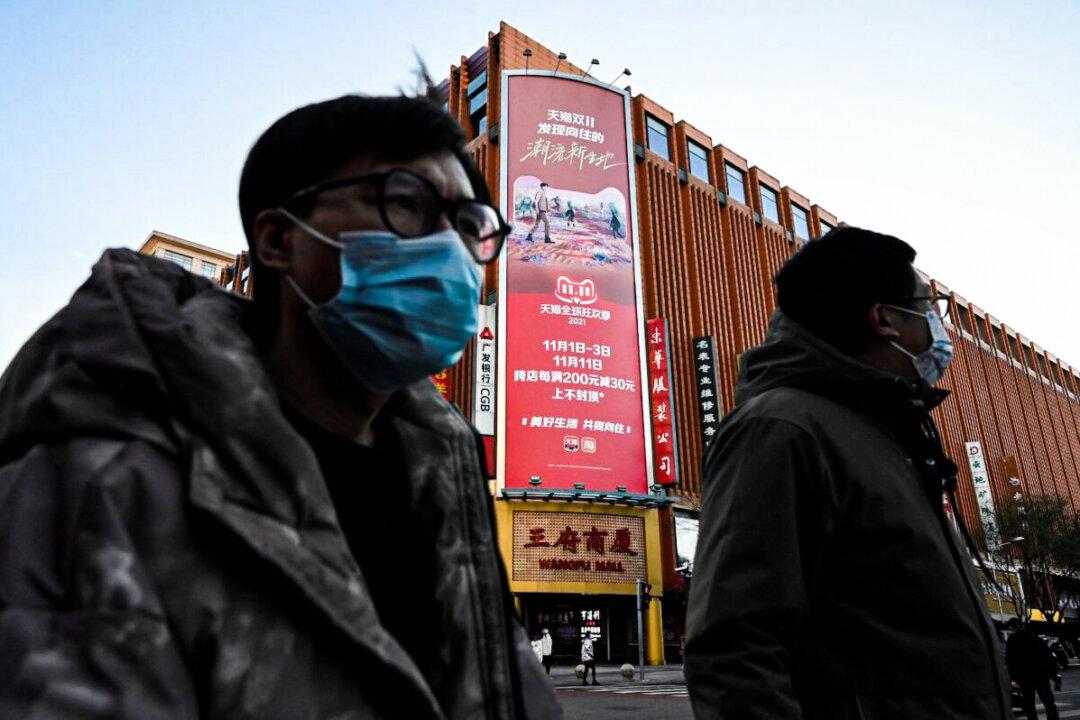Since Ma Ying-jeou came to power in Taiwan, Beijing has regarded “unity” to be just around the corner. Beijing launching the Cross-Strait Service Trade Agreement (CSSTA) with intent to pave the last stone for unity between Taiwan and mainland China. But unexpectedly when this pot of boiling water was poured in, due to its being too hot, some of the frogs in simmering water jumped out and began to rescue themselves.
The movement against CSSTA in Taiwan was neither an impromptu street campaign nor the youth gathering and rushing impulsively, as claimed by China’s official media. Instead, it was initiated by Taiwan’s academia, students, and the general public based on their common interest, implicitly including the most important goal of defending Taiwan’s democracy.
Taiwan’s academic and civil society institutions have long noticed the effects of “red penetration” while the helpless battle between the blues (Kuomintang) and the greens (Democratic Progressive Party) have led Taiwan’s democracy to a semi-paralyzed state, and made Taiwanese feel hopeless. This time the CSSTA was a tipping point that triggered the Sunflower Student Movement because Taiwanese felt that if they did not take action immediately, Taiwan would be stepping into the shoes of Hong Kong, and Taiwan’s democracy would be difficult to keep.
China’s official media claimed that the CSSTA is a win-win situation for China and Taiwan, but because some Taiwanese did not understand it completely, they opposed it blindly and were used by the Taiwan independence forces. But this time what they said has completely deviated from the real situation. Taiwanese also did not believe those claims, such as, “Once the CSSTA is passed, all the Taiwan’s industries will collapse.” In the beginning, the Taiwanese people’s main reaction on the CSSTA was “The government lacked communication” and “Too many big words were used when the official explained it, the more one listens, the more confused one gets.”
Beijing has prepared the CSSTA for a long time and has intentions with it. Due to the CSSTA involving dozens of industries, if there are no experts to study both sides’ industries and policies deeply, it will be very difficult for people to realize its advantages and disadvantages. Fortunately with the efforts of several National Taiwan University scholars, Taiwan people can understand the CSSTA’s potential harm to Taiwan.
To let everyone understand the CSSTA, professors Cheng Yuling and Chang Chinhua in National Taiwan University strenuously analyzed it clause by clause. With months of effort, the report, “How the Pending Agreement on Trade in Services Between China and Taiwan Would Impact Taiwan’s Economy and Sovereignty” was published, providing professional analysis for the anti-CSSTA movement.
Among China’s political opponents (including human rights defenders), there are some who are not well-educated and tend to be against intellectuals. Without a good understanding of the democratic movement and democratic system, they usually exaggerated the significance of street protests, advocating “Taking to the streets rather than waiting” and found pleasure in abusing “the public intellectuals.” The anti-CSSTA movement of this time should at least let them know that modern society is not the same as the era of peasant uprisings—at the time the revolution was simply defined as taking up long spears or big knives. The saying “Liu Bang and Hsiang Yu [prominent rebel leaders who overthrew the Qin Dynasty over 2000 years ago] did not read books” does not work at all for modern society
Ease of Organizing Democratic Youth
The political apathy of Taiwan’s youth is due to being tired of the struggles between the blue and green parties. But they grew up in a democratic society, which gave them a clear awareness of their rights. If you want to mobilize students to participate in social movements in mainland China, at first you need to get rid of their “Animal Farm consciousness” developed through years of brainwashing, which believe that “You cannot making a living on democracy.”
Taiwan’s students realized that defending their rights must be through social participation, and thus they threw themselves into the anti-CSSTA movement. Once they participate, the people of this generation can utilize the Internet efficiently, spreading information and organizing various activities very rapidly.
For example, they published widely popular articles on the importance of free trade. In the column, “About the China Factor,” six articles are included, discussing the likelihood and impacts of various China’s factors. For those who don’t understand the CSSTA, the contents including “The defects on the process (five points),” “The impacts on industries (six points),” “Differences and conflicts between generations,” and “After the CSSTA, what we need to do” all have reference and instructional values.
The anti-CSSTA movement also created the Black Island Nation Youth Front, launching an “anti-black-boxing CSSTA street democracy classroom” to teach people common sense about anti CSSTA; open the anti-black-boxing CSSTA community on Facebook for posting all kinds of information. In contrast with the Ma Ying-jeou government’s official interpretation, the opponents use simple network texts, graphics, and tables, comics, and videos. They specifically listed all the phone numbers of Taiwan’s legislators on the website and urged Taiwan’s people to fulfill their civic duties and rights, making calls to the legislators and expressing their attitudes against the CSSTA.
Significance for Taiwan
In recent years, due to the Ma administration kowtowing to Beijing, the trend of cross-strait unification is gradually forming. While Taiwan’s young generation enjoys the democracy and freedom that the older generation fought hard for, they do not know that due to many restrains from the mainland regime, guarding democracy and freedom is not easy. This CSSTA is like a barrel of hot water on their heads that woke them up, so that they begin to act, to exercise their civic rights, and to safeguard Taiwan.
The anti-CSSTA movement has caused very strong reactions in Hong Kong. Democratic activist Li Yi used his methods to remind the Taiwanese, “Hong Kong was once the example that Taiwanese envied, today it is reduced to a lesson that Taiwanese should learn from. Other than the fact that the CCP did not live up to its promise of ‘one nation, two systems’ the most critical is that many Hong Kong people did not treat Hong Kong as their home; they only cared about making money and gaining political and economic interests, but were unwilling to sacrifice economic interests for public interests.”
There is an illustrative photo that has been widely circulating on the Internet. The photo shows a young man from Hong Kong wearing glasses with a sign hanging from his neck, which reads, “I’m a Hong Konger, please step on our dead bodies and thinking about Taiwan’s path.” At the same time, people in Hong Kong started the “Protect Democracy, refuse black box: Hong Kong strongly support Taiwan anti-CSSTA” campaign.
Major Divide in Mainland
Just like all protest movements, the Taiwan anti-CSSTA movement has caused a major divide among mainland Chinese netizens. CCP’s mouthpiece media in Hong Kong like the Wen Wei Po published posts on Weibo saying “anti-CSSTA is not a ‘fashion’ trend for the Taiwanese youth.” They try to deny the consciousness and political significance of anti-CSSTA participants.
The People’s Daily overseas edition claims that CSSTA would benefit Taiwan so much, and hope that the opponents “do your homework well before speaking.” Then the People’s Daily article titled “bad student movement reflect Taiwan political crisis” claims, “The CSSTA is a win-win economic agreement for both sides, if the effective dates keeps getting delayed, follow-up negotiations on the CSSTA will be adversely affected. Facing such great development opportunity, but the Taiwanese economy keeps getting dragged down by populist politics, this is a crisis for the Taiwanese economy, and also tragedy for the Taiwanese politics.” There are even those who view the over 100 billion U.S. dollars trade surplus between Taiwan and mainland China as the benefit that mainland China is giving to Taiwan.
The above remarks gain quite a lot of adherents who were usually sober. Many Chinese netizens express anger and dissatisfaction toward Taiwanese for being “ungrateful.” This general attitude can be generally summarized as, “(We) gave you so much benefits, but you are not satisfied, and start this anti-CSSTA.” The root error in such thought is the belief that money can buy everything, even a person’s freedom, dignity, and civil rights all can be forced to be given up after “giving money.” One saying that the Chinese government often uses during its “maintain stability” campaign is “People’s internal problem can be solved with renminbi (mainland China’s currency). ” In a society dominated by such a mentality, it’s very hard to truly understand, “Life is precious, love is even more, but for freedom, both of these can go.”
While mainland China censors postings very strictly, there are still many dissenting voices that can be heard. My post “CSSTA: The last paving stone before China and Taiwan turn into one” was widely circulated by Chinese netizens. After it was posted on someone’s Weibo, it was shared 80,000 times, and then it was quickly censored. From people’s replies, you can see that when people understand why Taiwanese are against the CSSTA, most of them are supportive.
While these people never visited Taiwan, but they have a simple feeling, that the CCP’s totalitarian rule in mainland lacks humanity, and people in Taiwan shouldn’t have to suffer through it. In their minds, the establishment of democracy in Taiwan was not only a win for the Taiwanese people, but also shattered the absurd saying that, “Democracy is not suitable for Chinese society.”
Information cannot be blocked in the age of Internet. I believe that Taiwan’s anti-CSSTA movement gave political dissidents in mainland China a great chance to learn. In the areas of methods of organization, methods of spreading the news, and in trying to gain greater societal support, there are many things they can learn from the Taiwan Anti-CSSTA movement.
He Qinglian is a prominent Chinese author and economist. Currently based in the United States, she authored “China’s Pitfalls,” which concerns corruption in China’s economic reform of the 1990s, and “The Fog of Censorship: Media Control in China.”




